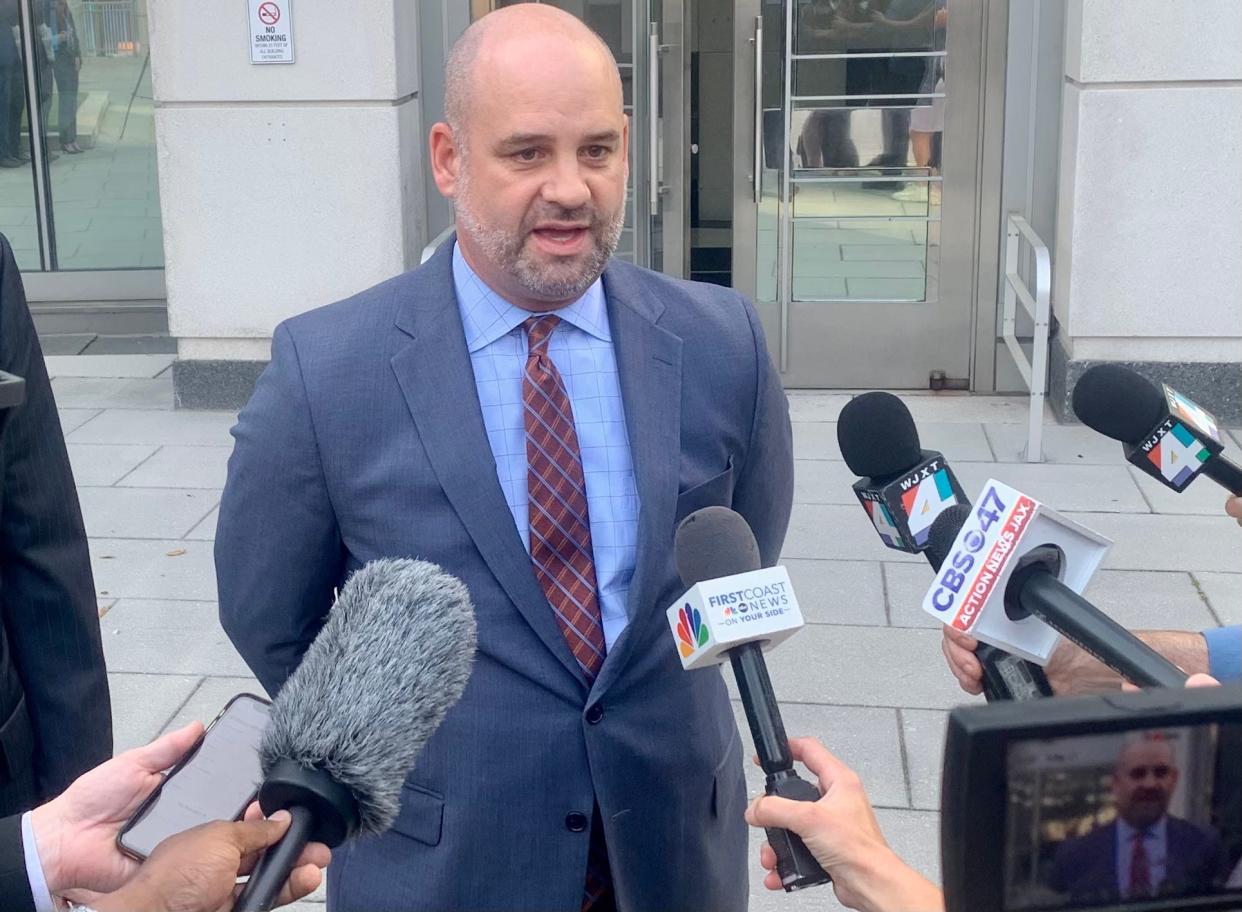Monroe: Citing 'difficult' issues, DOJ asks to delay sentencing for ex-JEA CEO Aaron Zahn

Federal prosecutors asked U.S. District Judge Brian Davis this week to push back the sentencing hearing for ex-JEA CEO Aaron Zahn to late July because of "expansive and difficult legal issues" that could significantly affect the kind of punishment the former utility executive will face for his conviction in March of conspiracy and wire fraud.
One of those issues, assistant U.S. Attorney Tysen Duva disclosed in a court filing, involves how "intended loss" will figure into Zahn's sentence. At trial, prosecutors presented evidence that Zahn and ex-JEA CFO Ryan Wannemacher had conspired to essentially skim tens of millions off the top of a sale of the city-owned utility to a private power company. Ultimately, the two were unsuccessful in that effort, and Wannemacher was acquitted by a separate jury of both the conspiracy and wire fraud charges that Zahn now faces punishment for.
Federal sentencing guidelines allow for the inclusion of "intended loss," or "what the loss would have been if the defendant had not been caught," when calculating a sentence. And since that figure in Zahn's case is theoretically so high — some estimates placed the total potential payouts of Zahn's conspiracy to be as high as $600 million — that could significantly impact the decision Davis makes when handing down a sentence.
But appeals courts have split on how to interpret some of the federal sentencing guidelines, including the intended loss concept. Duva's court filing referenced "recent developments" over that topic as an underlying complexity in preparing a pre-sentencing report on Zahn.
At this stage in the process, a federal probation officer has begun to prepare that pre-sentencing report, a comprehensive document that includes in-person meetings with the defendant in their home, often in the presence of their family, to help determine their personal history, ties to the community, and their willingness to accept responsibility for their conduct — all factors that can affect the recommended sentence. Those reports are not made public but play a large role in helping the trial judge determine a sentence and influence where a defendant will be sent to serve their prison term.
For Zahn, preparing the pre-sentencing report is "particularly daunting in this case," Duva wrote.
"The litigation of this case and the trial presented complicated issues of law and fact. The Government and the Defense litigated this case for approximately two years before it was tried to two juries," Duva wrote.
"The sentencing hearing will likewise pose expansive and difficult legal issues for the Court to rule upon."
The conspiracy and wire fraud convictions Zahn faces carry a maximum penalty of 25 years in prison, but those maximums are almost never handed down and Davis will likely have wide latitude to decide Zahn's fate.
The sentencing hearing was originally scheduled June 18, but Duva's request to the judge, which Zahn's attorneys agreed to, would push the hearing back to dates between July 24-30.
Although the defense and prosecution agree on the need to delay the hearing, they are also sparring over Zahn's request to either have his convictions tossed or to get a new trial. Zahn's attorneys told Davis there were a range of problems with the trial, including misconduct by Duva, when he provided the jury his own commentary on the case during closing arguments. Those comments, including an allegation Zahn had attempted to "fleece" the city, were "improper appeals to emotion," Zahn's attorneys argued.
"Zahn makes sweeping allegations of prosecutorial misconduct ...," Duva wrote this month in response. "Zahn indeed tried to fleece the (city), the entity which he was convicted of conspiring to steal from. Such was proper argument."
Zahn's motion also details a list of grievances that go beyond the trial and strike at the underlying case against him, including some arguments that Davis has already rejected. There is no timeline for Davis to rule on that motion.
Nate Monroe is a metro columnist whose work regularly appears every Thursday and Sunday. Follow him on Twitter @NateMonroeTU.
This article originally appeared on Florida Times-Union: Federal prosecutor asks to delay sentencing for ex-JEA CEO Aaron Zahn

